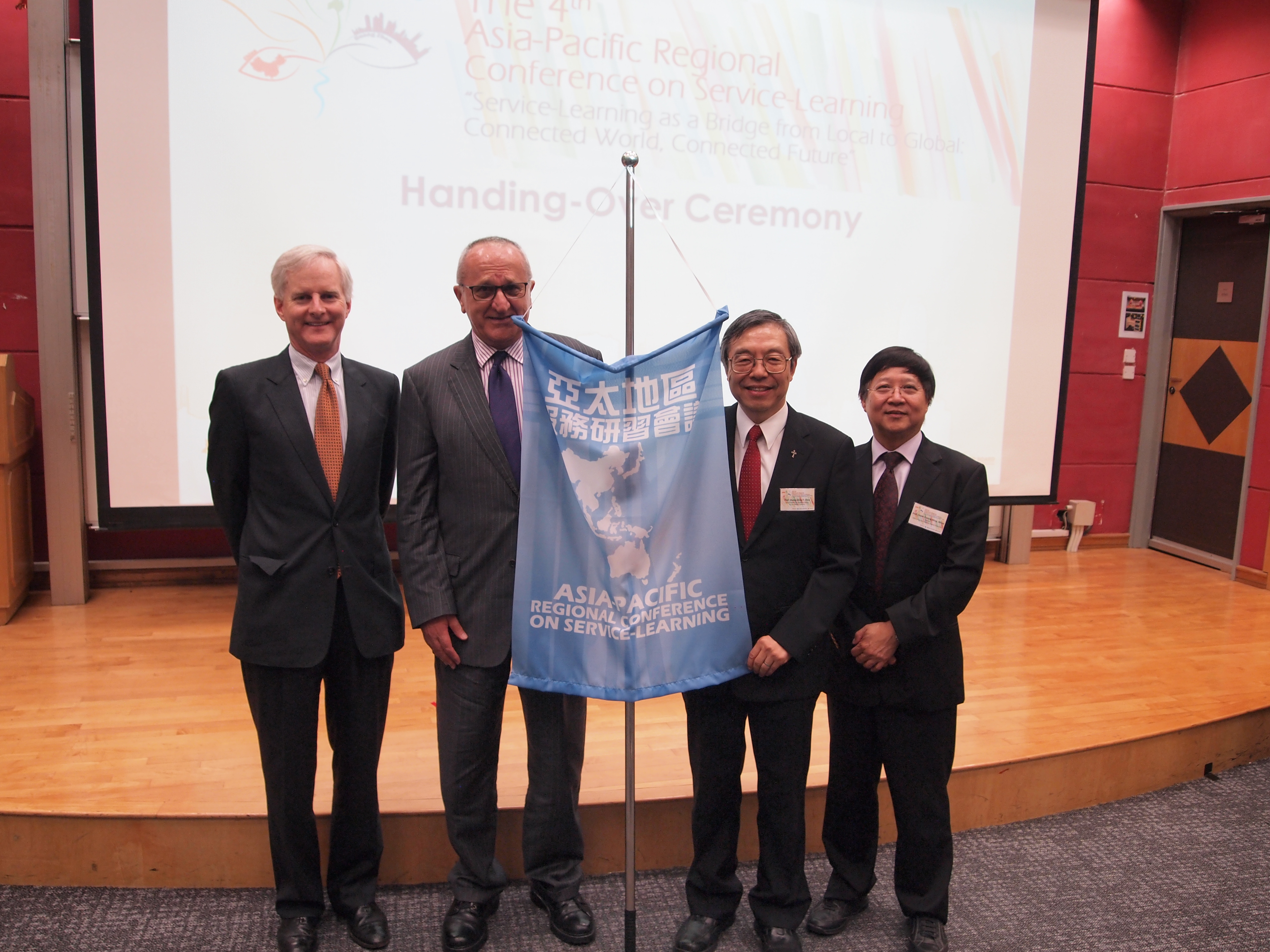Embedding service learning in special education teacher preparation program
Location
MD203, Paul Cardinal Shen Medical Building, Fu Jen University
Start Date
28-5-2015 1:30 PM
End Date
28-5-2015 2:40 PM
Description
Background
As the demographics of the student population continue to get diverse, U.S. teachers need to be prepared to work with student s with different learning needs. This is especially true for special educators. Approximately 43 percent of the students in the U.S. are from diverse background (U.S. Department of Education, 2014), while 44 percent of them are students with disabilities (U.S. Department of Education, 2013). Research suggests that one of the greatest barriers to effectively teaching students with disabilities is that teachers fee l inadequately trained to address their students' individualized needs (e.g., Pijl 2010). Pre-service teachers need to integrate theory and practice. This integration must be done throughout the program, and not just during their final internship semester. The purpose of this presentation is to share how one special education teacher preparation program in the U.S. successfully incorporates service learning throughout the program of study, so pre-service teachers start their fieldwork as soon as they enter the program.
Discussion Focus
The Special Education Program at the University of Massachusetts Boston is a graduate program, which prepares individuals to be special educators at the elementary, middle, and high school levels. Students who are admitted in the licensure program are expected to take seven courses and one internship course. Service learning is embedded in each course. In addition to attending course sessions at the university, students are required to complete specific assignments in the field. For example, in an assessment course, pre-service teacher is required to select a student with a disability, collect background information of the student by interviewing parents and teachers, conduct the required assessments, analyze test data, and write a formal evaluation report. Each student's performance is evaluated by both the course instructor and a local school teacher.
Suggestions
As indicated in the recent accreditation, embedding service learning opportunities in the Special Education Program is one of the program strengths. In the past years, approximately 85 percent of our graduates received job offers prior to their graduation. In order to have a successful implementation of service learning in the program, developing collaborative partnerships with local schools is a must.
Recommended Citation
Lo, L. (2015, May). Embedding service learning in special education teacher preparation program. Paper presented at the 5th Asia-Pacific Regional Conference on Service-Learning: Love Journey: Community Engagement through Service-Learning, Fu Jen Catholic University, Taiwan.
Embedding service learning in special education teacher preparation program
MD203, Paul Cardinal Shen Medical Building, Fu Jen University
Background
As the demographics of the student population continue to get diverse, U.S. teachers need to be prepared to work with student s with different learning needs. This is especially true for special educators. Approximately 43 percent of the students in the U.S. are from diverse background (U.S. Department of Education, 2014), while 44 percent of them are students with disabilities (U.S. Department of Education, 2013). Research suggests that one of the greatest barriers to effectively teaching students with disabilities is that teachers fee l inadequately trained to address their students' individualized needs (e.g., Pijl 2010). Pre-service teachers need to integrate theory and practice. This integration must be done throughout the program, and not just during their final internship semester. The purpose of this presentation is to share how one special education teacher preparation program in the U.S. successfully incorporates service learning throughout the program of study, so pre-service teachers start their fieldwork as soon as they enter the program.
Discussion Focus
The Special Education Program at the University of Massachusetts Boston is a graduate program, which prepares individuals to be special educators at the elementary, middle, and high school levels. Students who are admitted in the licensure program are expected to take seven courses and one internship course. Service learning is embedded in each course. In addition to attending course sessions at the university, students are required to complete specific assignments in the field. For example, in an assessment course, pre-service teacher is required to select a student with a disability, collect background information of the student by interviewing parents and teachers, conduct the required assessments, analyze test data, and write a formal evaluation report. Each student's performance is evaluated by both the course instructor and a local school teacher.
Suggestions
As indicated in the recent accreditation, embedding service learning opportunities in the Special Education Program is one of the program strengths. In the past years, approximately 85 percent of our graduates received job offers prior to their graduation. In order to have a successful implementation of service learning in the program, developing collaborative partnerships with local schools is a must.
